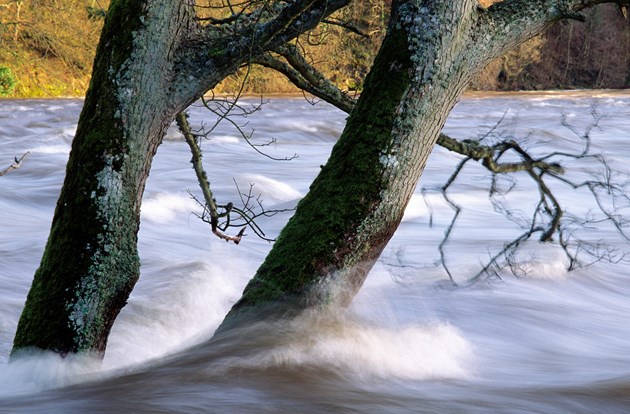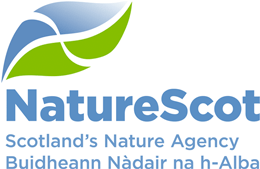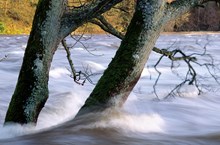22 November, 2022
Four Nation Call for Nature to Remain at Top of Government Agenda

The nature agencies of the four nations of the United Kingdom have come together, ahead of COP15 in December, to call on governments to keep biodiversity loss and climate change at the top of the agenda.
Speaking with one voice at this time of nature crisis, the statutory nature conservation bodies of NatureScot, Natural England, Natural Resources Wales and DEARA Northern Ireland highlight the need for action to recover nature now, both in the UK and globally, saying: “We know the relationship between climate and biodiversity is inseparable and societies must focus on both in tandem. If we fail on one of the biodiversity or climate crises, we fail on both.” *Full statement below.
With economic and biodiversity health inextricably linked, the organisations have issued the rare joint statement as governments prepare to meet at The UN Biodiversity Conference (COP 15) in Montreal, Canada between the 5th and 17th of December. The urgent call to protect nature is also supported and signed by other national nature organisations and led by the Joint Nature Conservation Committee (JNCC), the public body that advises the UK Government and devolved administrations on UK-wide and international nature conservation.
The four-nation nature agencies argue that there has never been a more critical or opportune time to invest in nature’s recovery, and that it cannot not be achieved without healthy nature climate stabilisation, economic security, food security and water security. The statement asks that all governments continue to work to halt damage to the ecosystems that support us all and deliver on the ambitions of the new global action plan for nature being negotiated at COP15.
NatureScot Chief Executive, Francesca Osowska, said: “This winter, new global targets for nature will be agreed at the United Nations Biodiversity Conference in Montreal, Canada (COP15). This, as well as the recent COP27 on climate change and the publication of the new Scottish Biodiversity Strategy next year, mean the time is now for Scotland to take ambitious action against climate change and nature loss.
“Investing in nature’s recovery is also investing in the prosperity and wellbeing of our four countries – the sooner we act to recover nature, the sooner we will all benefit. It is not too late, and the UK’s nature agencies know what needs to be done and how to do it. That is why all governments must deliver for nature at COP15.”
Biodiversity Minister Lorna Slater said: “Scotland was one of the first countries to declare a global climate emergency and recognise the need to tackle the twin crises of climate and nature together. We need nature to mitigate the effects of climate change, and we must take urgent action to protect it.
“That’s why we established our £65 million Nature Restoration Fund and committed to expanding protected areas, including Scotland’s National Park network. We will soon publish a new national biodiversity strategy, underpinned by statutory nature recovery targets, which will set out our vision to stop biodiversity loss by 2030.
“We have reached a crucial moment with COP15 approaching next month. We must make sure that the climate and nature crises remain high on the global agenda, and are recognised as part of the answer to many of the world’s challenges.
“I believe that all levels of government - in particular where responsibilities are devolved as is the case for Scotland - have a central part to play to deliver the transformative actions needed to halt biodiversity loss across the coming decades. Our leadership of the Edinburgh Declaration – an ambitious international agreement for nature – has now been signed by 280 sub state governments, cities and local authorities across the world. In addition to supporting the UK delegation, I am looking forward to bringing the voice of the subnational constituency to COP15 and I hope it can help secure a nature-positive future.”
Statement
Nature Recovery for Our Survival, Prosperity and Wellbeing
A joint statement by the statutory nature conservation bodies of the UK.
With the challenges currently facing the UK, there has never been a more critical or opportune time to invest in nature’s recovery.
The evidence is clear. Nature is our life support system and our economy is embedded in nature.
Investing in nature’s recovery is investing in our economic prosperity and societal wellbeing. The sooner we act to recover nature, the sooner and greater the benefits we reap.
We know that recovering nature leads to environmental security. Without healthy nature climate stabilisation, economic security, food security and water security cannot be achieved. By investing in nature within everything we do we are investing in the prosperity and wellbeing of all.
We know the relationship between climate and biodiversity is inseparable and societies must focus on both in tandem. If we fail on one of the biodiversity or climate crises, we fail on both.
We know how to harness nature’s ability to increase the prosperity and wellbeing of our four countries. And we know that nature is the key to increasing our resilience and improving our environmental security. Working together we will support governments, business, and broader society to achieve nature’s recovery by:
- Embedding environmental security and nature’s recovery into UK decision-making frameworks. Especially when considering threats to the UK’s economic security.
- Supporting the global community to commit to binding targets at COP151 to increase quickly and effectively the health of the world’s ecosystems. Creating a level playing field as all nations work to recover and restore their ecosystems.
- Supporting domestic and global monitoring to report on progress in achieving these targets.
- Delivering on the UK’s COP15 ambitions with impactful policies across the UK that incentivise and drive public and private investment in the protection and recovery of the UK’s nature through all our activities.
- Supporting governments around the world to transition to nature positive policies and legislation. Making ecosystems everywhere healthier and more productive and enhancing prosperity and wellbeing for all.
- Negotiating sustainable trade agreements that consider their impacts on nature’s recovery so that trade increases rather than decreases environmental security. In turn, securing the UK’s global supply chains.
- Delivering on the strong ambitions of the UN Framework Convention on Climate Change to drive public and private investment in nature-based solutions to achieve climate stabilisation.
Standing together as the UK’s statutory nature conservation bodies we recognise the strength and urgency of the evidence. We are speaking with one voice at this time of nature crisis to highlight the need for action to recover nature now. Both in the UK and globally. So that the UK’s prosperity and wellbeing can be secured into the future.
We stand ready to support the four UK Governments as advisers and delivery partners. To assist the UK in delivering domestically on its ambitious global commitments, to recover the UK’s nature and provide a secure, sustainable future for all.
Tony Juniper CBE, Chair of Natural England
Marian Spain, Chief Executive Officer of Natural England
Dr Hilary Kirkpatrick, Chair of Council for Nature Conservation and the Countryside
Paul Donnelly, Chief Executive Officer of Northern Ireland Environment Agency
Dr Mike Cantlay OBE, Chair of NatureScot
Francesca Osowska OBE, Chief Executive Officer of NatureScot
Sir David Henshaw, Chair of Natural Resources Wales
Clare Pillman, Chief Executive Officer of Natural Resources Wales
Professor Colin Galbraith FRSE, Chair of the Joint Nature Conservation Committee
Dr Gemma Harper OBE, Chief Executive Office of the Joint Nature Conservation Committee
Nature’s Recovery Underpinning Our Survival, Prosperity, and Wellbeing: The Evidence
As the UK’s statutory nature conservation bodies, we outlined the importance and relevance of nature, including positive actions the UK can take, in our Nature Positive 2030 Summary Report and accompanying Evidence Report2.
Nature underpins the global markets that supply our goods and services. With species and ecosystems providing the nutrients, oxygen, water, shelter, disease regulation, and climate regulation that we need to facilitate our economies and our wellbeing.
Biodiversity, including the species and ecosystems that comprise life on earth, enables nature to be productive. Much like how a diverse portfolio of financial assets reduces risk and uncertainty, a diversity of species and ecosystems provides us with more resilient and productive nature overall.
As HM Treasury’s 2021 Dasgupta Review of the Economics of Biodiversity demonstrates, the common assumption that the goods and benefits provided by nature which underpin our economy are unlimited and inexhaustible is wrong.
Food Security
The 2021 UK Food Security Review states ‘the biggest medium to long term risk to the UK’s domestic [food] production comes from... environmental pressures like... biodiversity [loss]’. The report further highlights biodiversity's importance in global food security, stating ‘more than 75% of the leading types of global food crops rely to some extent on animal pollination for yields and/or quality’. With a 2019 OECD report to the G7 noting that such crops have a value of between $235-577 billion annually. HM Treasury’s 2021 Dasgupta Review of the Economics of Biodiversity further highlights the importance of soil biodiversity to food production, stating ‘If soil biodiversity were completely lost, the land-based food system would cease to function’.
Water Security
The recovery of nature to restore natural processes, including natural hydrological processes, can have a profound effect on improving water security. The UK Government’s Natural Capital Committee’s Third Report to the Economic Affairs Committee found that embracing nature-based solutions through the restoration of wetlands upstream of major towns and cities could yield costs to benefit ratios of up to 9:1. From realising improved water security, reduced water treatment costs, and managing flood risks. Developing and using natural solutions to help maintain our water supplies is a clear priority for the future.
Sustainable Economies
Analysis by the UK finance sector’s Natural Capital Finance Alliance in 2018 found that ‘74% of the [FTSE All-Share] Index sectors are potentially highly or very highly dependent on natural capital’. While the Office for National Statistics found the UK’s natural capital assets were worth £1.2 trillion in 2019. The World Economic Forum found around half of the world’s GDP ($44 trillion) is highly or moderately dependent on nature and the OECD’s 2019 report to the G7 found ‘the socio-economic case for more ambitious biodiversity action is clear... the most comprehensive estimate suggests that ecosystem services provide benefits of $125 – 140 trillion per year, i.e. more than one and half times the size of global GDP’. Combined these figures highlight the importance of growing prosperity without undermining the natural foundations on which that prosperity lies.
Disaster Resilience
Embracing nature-based solutions can provide efficient and effective means of reducing the risk from natural disasters, especially in a rapidly warming climate. The Climate Change Committee’s 2021 UK Climate Risk Independent Assessment (CCRA3) report highlights the potential for nature-based solutions to help the UK adapt to the increasing strength of natural disasters in the face of a changing climate. With trees producing welcome urban shade in heat waves, saltmarsh protecting coastal communities from rising sea levels, and wetland and riparian habitats reducing the intensity of riparian flooding. The Environment Agency’s 2021 report on ‘Working with natural processes to reduce flood risk’ provides an in-depth overview of the role of nature in reducing flood risk. The ‘natural tools’ to help the situation exist, they just need to be used.
Climate Breakdown
Degraded ecosystems are less able to absorb carbon from the atmosphere, and more likely to emit carbon into the atmosphere. The relationship between climate and biodiversity is inseparable, fail on one of the biodiversity or climate crises and we fail on both. Restoring half the UK’s peatlands would store carbon to the value of £45-51 billion according to the Office of National Statistics, while the Committee on Climate Change estimate that restoring half of the UK’s upland peat and a quarter of the UK’s lowland peat would reduce the UK’s emissions by 5 MtCO2e by 2050. The Committee on Climate Change’s 2022 report on Blue Carbon further found that the restoration of saltmarsh and seagrass ecosystems could reduce the UK’s emissions by under 1 MtCO2e per year. Achieving high nature and low carbon is a clear challenge for the future and is one that we need to play a part in meeting.
Improving Health & Wellbeing
While anecdotal reports on the value of nature and time spent in nature to wellbeing have only grown since the pandemic lockdowns, the Office for National Statistics 2022 Report on the Health Benefits from Natural Capital found that the value of the health benefits from time in nature were between £6.2 billion and £8.4 billion a year. Degraded ecosystems further increase the risk of emerging zoonotic diseases. The 2020 UN Intergovernmental Science-Policy Platform on Biodiversity and Ecosystem Services’ Workshop Report on Biodiversity and Pandemics estimated pandemics and other emerging zones costs the global economy over US$1 trillion annually, with the COVID-19 costing US$8-16 trillion by July 2020. Beyond a clear financial analysis, nature is part of our heritage and our culture and helps to make us who we are.
ENDS.
Contact information
- Name
- NatureScot Media
- Telephone
- 0131 316 2655
- media@nature.scot
NatureScot is Scotland's nature agency. We work to enhance our natural environment in Scotland and inspire everyone to care more about it. Our priority is a nature-rich future for Scotland and an effective response to the climate emergency. For more information, visit our website at www.nature.scot or follow us on X at https://x.com/NatureScot
’S e NatureScot buidheann nàdair na h-Alba. Bidh sinn a’ neartachadh àrainneachd na h-Alba agus a’ brosnachadh dhaoine gu barrachd suim a chur ann an nàdar. Tha e mar phrìomhachas againn gum bi nàdar na h-Alba beairteach agus gun dèilig sinn gu h-èifeachdach le èiginn na gnàth-shìde. Tha an tuilleadh fiosrachaidh aig www.nature.scot no air X aig https://x.com/NatureScot

